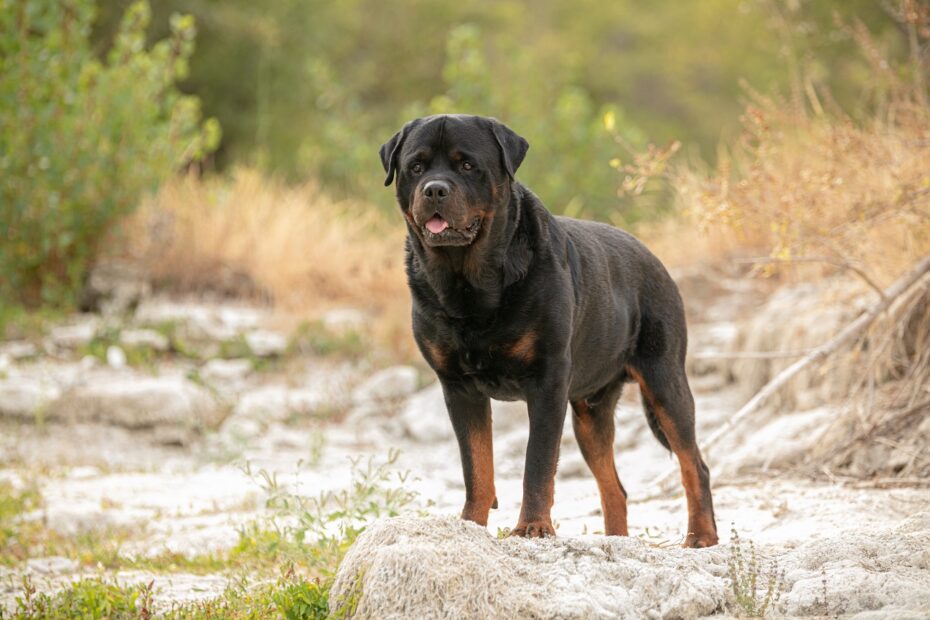If you’re looking for a proven way to stop a Rottweiler biting then this is the most important page you’re ever going to read.
Because let’s face it, while smaller breeds that bite like Chihuahua’s can be a mild nuisance at best. A Rottweiler that bites is a danger…
…A danger to you, to other dogs, and to themselves.
These are big dogs with big jaws and the power to inflict more damage than you probably want to know about.
And if they decide to use that power, they can exert a bite force of up to 300 pounds of pressure. And that’s something no one wants to be on the receiving end of.
Fortunately, stopping this behavior is NOT an impossible challenge. With the right combination of training and behavior modification, most Rottweilers can learn to keep their teeth to themselves.
The first step? …Teaching your Rottie how to remain calm and in control of their emotions.
This is why before moving on, I’d highly recommend grabbing a free copy of “My Everyday Dog Training Tools” from Dan Abdelnoor over at The Online Dog Trainer.
Inside the book, Dan discusses what to do, but more importantly what NOT to do to help quickly curb your dog’s aggressive tendencies. Before revealing a few simple calming exercises to turn your Rotties biting habit into a thing of the past.
Better still, these exercises take minutes a day to apply so they’re perfect if you don’t want to waste hours of time teaching your dog or thousands of dollars on expensive dog trainers.
Anyway, here’s the link to take a look: Click Here To Grab Your Free Copy Of My Everyday Dog Training Tools & Discover How To Finally Stop Your Rottweiler’s Aggressive, Dangerous Biting Habit… Without Wasting Hours Of Time Or Thousands Of Dollars!
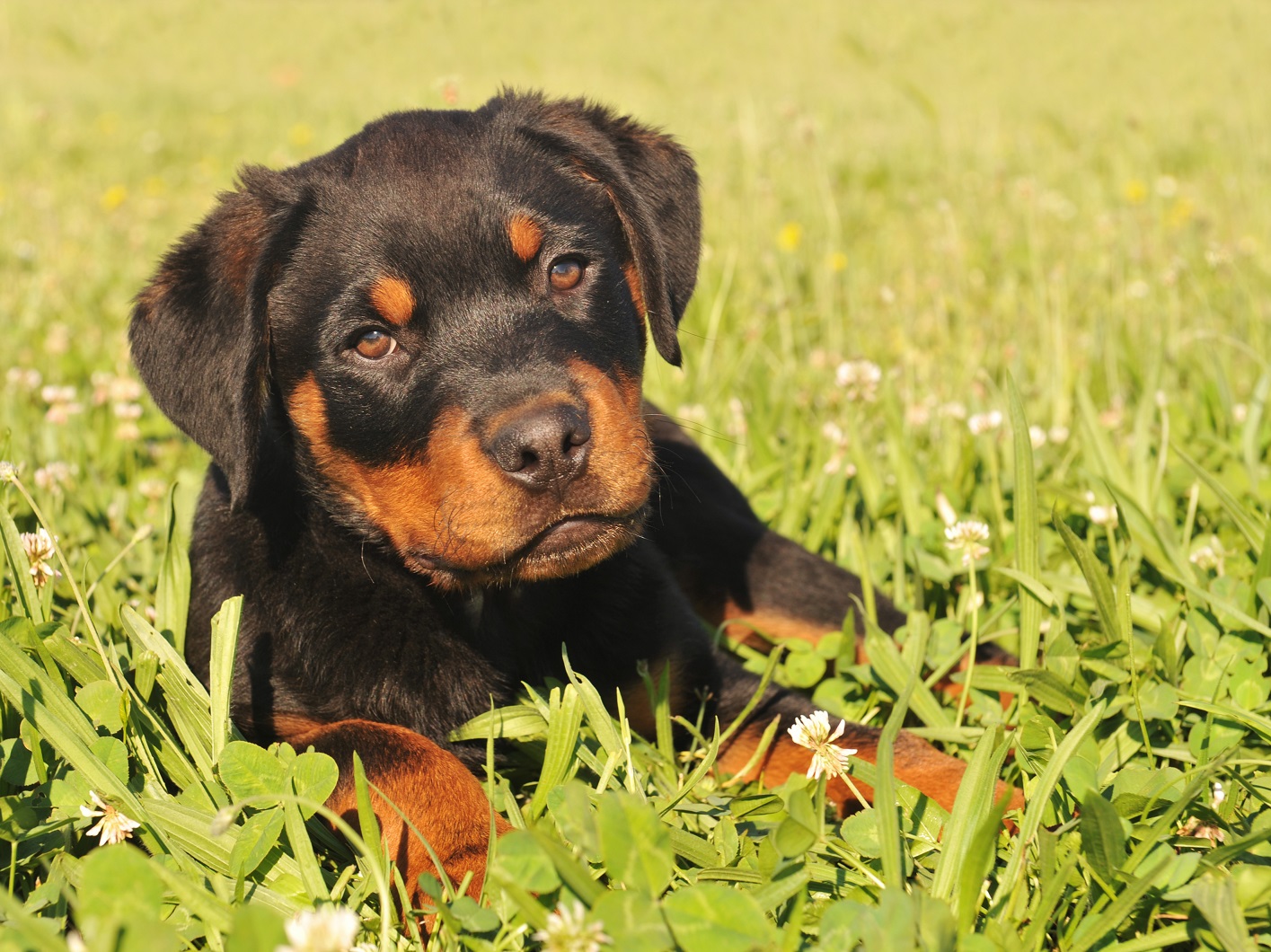
Why is my Rottweiler Biting?
Rottweilers have an image problem. When most people imagine the typical Rottweiler, they picture heaving muscles, snarling muzzles, and bared teeth.
By and large, that’s a misconception.
Rotties aren’t aggressive by birthright. If they’re displaying aggressive tendencies like biting, it’s because something, somewhere, hasn’t gone to plan.
Before you start worrying about how to deal with your Rottie’s bitting problem, take some time out to figure out what’s causing it.
Could it be that…
They Haven’t Been Properly Trained
Without wishing to sound judgmental, a dog’s behavior is often a reflection of their owners.
A Rottie’s behavior isn’t just informed by breed. It’s informed by personality, a personality that, like it or not, is shaped by us.
If we don’t make time to meet the training, care, and socialization needs of our dogs, the consequences will usually come back to haunt us.
Forgo the training of small, harmless dogs, and you’ll be looking at a few frustrations, mild embarrassment when visitors come over, and a lifetime of not being heard.
However, forgo the training of a dog like a Rottie, and a few frustrations will be the least of your problems.
This is a dog that doesn’t just benefit from an active approach to training, but that demands it. If boundaries aren’t set…
…If they aren’t socialized in how to behave around other dogs and people…
…And if you fail to assert yourself as pack leader, you’re looking at 130 pounds of trouble coming your way.
But while no training is bad, an abundance of the wrong kind of training is even worse.
Some people think the only way to get a powerful dog like the Rottie to respect them is by getting physical.
It’s not.
A theoretical firm hand is one thing. A literal one is something else.
A dog that’s punished, screamed at, and threatened from a young age is a dog that, at some point or another, will revisit that aggression on the people around them.
In the case of rescue dogs that have been abused and neglected for much of their lives, aggression may be the only way they know how to communicate.
They’re Possessive
Rotties aren’t alone in getting possessive about the things they value (all dogs are susceptible to some degree or another). But a 130 pound Rottie getting testy about someone approaching their food is a lot different from a 10-pound Miniature Poodle doing the same.
If they’ve decided their food, their toys, or even a particular person is too precious to risk losing, they’ll not appreciate anyone getting too close.
Whenever they think they’re in danger of losing the thing they most value, they’ll issue a few warning growls as a way to say “Back Off.”
If the message isn’t received and understood, those warning shots can quickly turn into all-out war.
They’re Exerting Their Dominance
We all know dogs are pack animals, and we all know packs have leaders.
What we don’t always know is that walking around on two legs rather than four doesn’t give us an automatic claim to the throne.
If your Rottie thinks the crown is up for grabs, they may use their teeth to try and steal it away.
In fairness, most dogs fight out their dominance issues between themselves. If clear boundaries haven’t been set, however, they may sometimes decide to include people in their power fights.
Related Post: How To Calm An Aggressive Rottweiler Before Bad Things Happen!
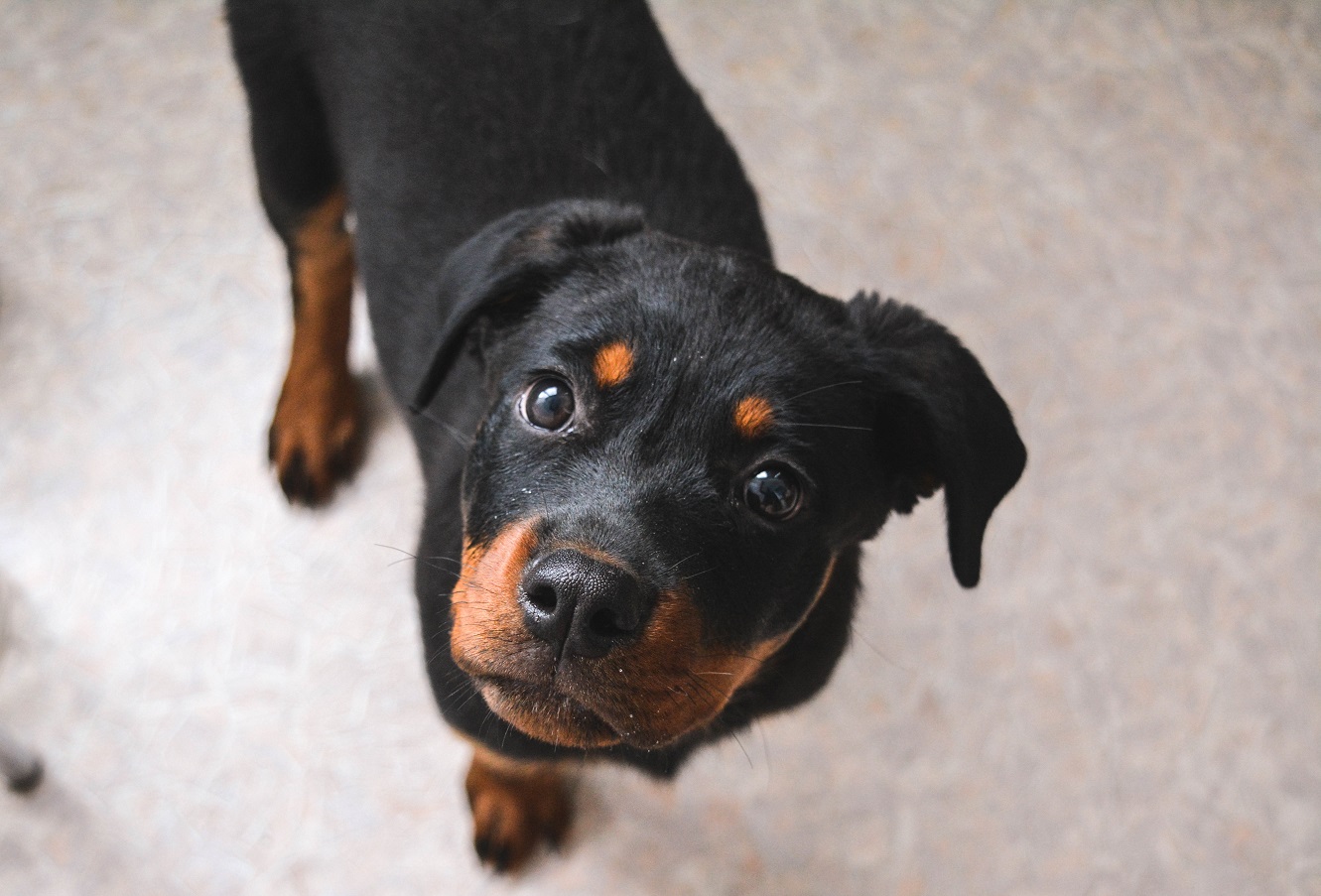
They’re Protective
There’s a reason Rotties have a reputation for being excellent guard dogs: they’re incredibly protective.
They’re protective of their homes, their families, their yards, and anything else that falls under the list of things they feel duty-bound to look after.
It might sound sweet. It’s not.
…Not for the mailman that has to look death in the jaws every morning.
…Not for your best friend who needs to stop by for a chat.
…Not for the babysitter who thought the kids were her responsibility, not the dogs.
If territorial and protective instincts are allowed to go unchecked, anyone your dog sees as a threat is at risk.
Unfortunately, who your dog sees as a threat could just as well be the UPS guy as a burglar.
They’re Anxious
Big dogs don’t cry, right? Wrong.
Rotties are just as prone to developing phobias, fears, and anxieties as any other dog.
It could be they haven’t been socialized enough and now see every new person, every new sound, and every new experience as something to get scared about.
It could be they have a history of abuse or neglect that’s left them with more mental scars than you want to think about.
Regardless of what’s causing the issue, the consequence will usually be the same.
Basically, your dog will feel threatened.
When that happens, they’ll either try to escape the scary thing or make the scary thing as scared of them as they are of it.
If they opt for the second option, you can guarantee it won’t be long before their teeth come out to play.
They’re Playing
It’s easy to think that all biting has its roots in aggression.
This isn’t necessarily the case.
If your dog is young, they might simply be doing what comes naturally to all pups- playing.
Puppies use their mouth to explore the world, to communicate, to play – basically, they lead with their mouths.
And while that’s very natural and very normal, it’s not something that can be left unchecked… not unless you want them to still be using your hand as a chew toy five years down the line, anyway.
They’re in Pain
If your dog has only recently started to bite, it could be a sign they’re in pain.
If a dog’s who’s ill or injured is approached, it’s natural for them to lash out in stress or pain.
Cognitive issues, hearing problems, and declining sight can also leave them confused, frustrated, and prone to out-of-character behaviors.
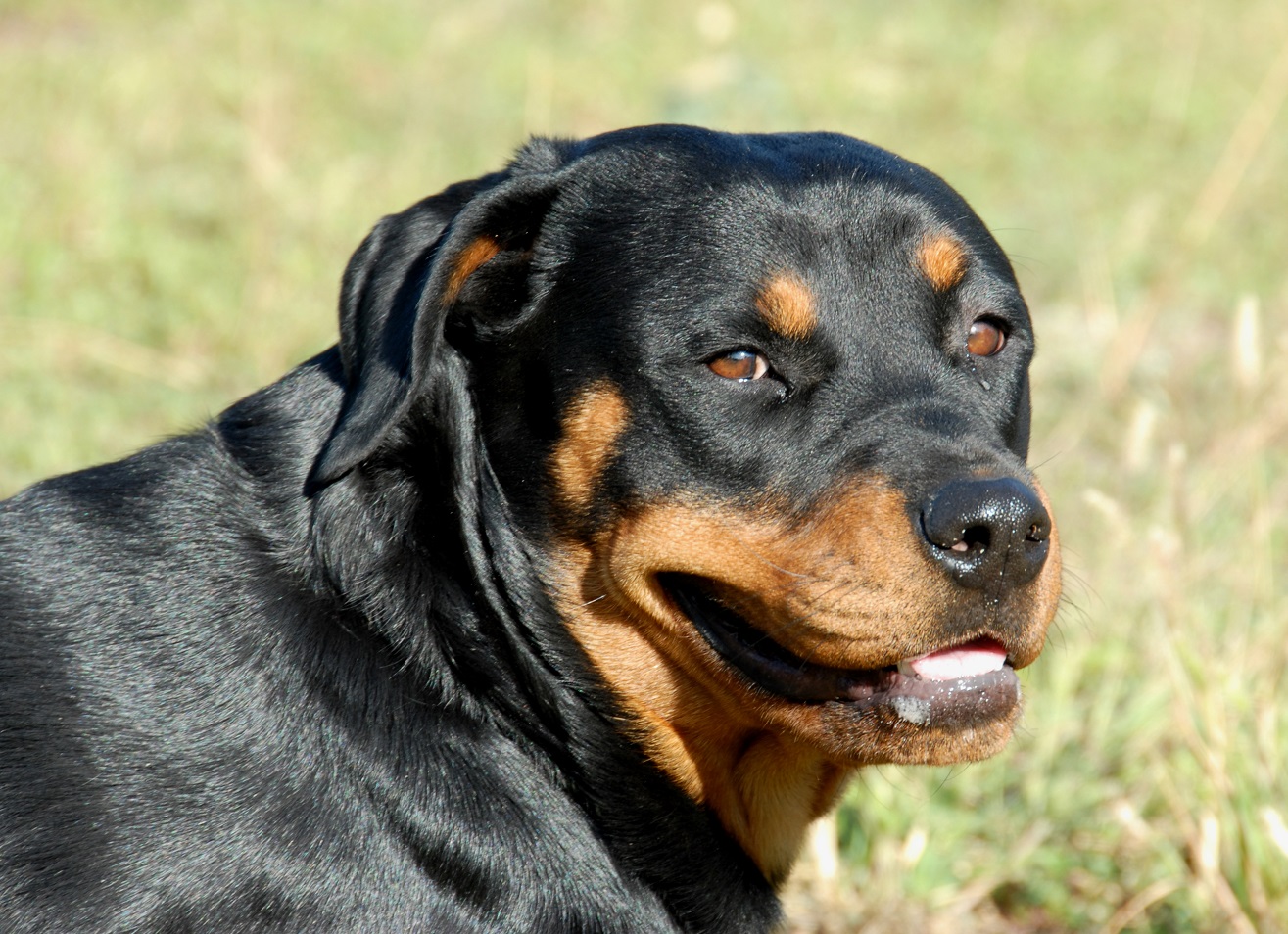
How to Stop a Rottweiler Biting
Regardless of what’s making your Rottweiler bite, the sooner you can put a stop to it, the better. Unless it’s properly and swiftly addressed, the behavior can have potentially lethal consequences.
Before we start looking at some of the behavioral strategies you can use to manage the behavior, I’d recommend taking a moment to grab a free copy of My Everyday Dog Training Tools I mentioned a little earlier.
A calm dog who’s in control of their emotions will naturally be less inclined to let their instincts or anxieties dictate their actions, and that’s exactly what the code aims to promote.
As an added advantage, it’ll make even the most cloth-eared dog listen up and pay attention during your training sessions.
Once you’ve watched the link, you can get to work on the following strategies.
Figure Out the Root Cause
Dealing with a Rottweiler that bites can send even experienced dog owners into a panic. The thing is, panic won’t get you anywhere.
Figuring out the cause of the behavior, on the other hand, just might.
Hard though it is, try to take a step back and look at the context of your dog’s behavior.
- Are they a rescue dog with a history of abuse and neglect?
- Have they been properly socialized?
- Do they spend all day patrolling the yard or keeping watch at the window?
- Do they get snappy around anyone who approaches their food bowl or toys?
- Do new faces, and unfamiliar surroundings send them over the edge of reason?
Some of the answers you come up with might not be comfortable.
Perhaps there’ve been gaps in their training, or you never found the time to socialize them as puppies.
Don’t beat yourself up.
This isn’t a blame game, and ultimately, we all make mistakes.
The important thing is to recognize what those mistakes are and begin to put the solutions in place to fix them.
Get Them Checked Over
If your Rottie has only recently started biting, don’t do anything before getting them checked by a vet.
If they’re injured or ill, they’ll need to be diagnosed and treated before anything else.
Be sure to let your vet know of any other changes in the behavior (lethargy, reduced or increased appetite/ thirst, confusion, walk refusal, etc.) that could help with their diagnosis.
Related Post: Why Does My Dog Bite Me When Excited? – How To Stop Unwanted Biting
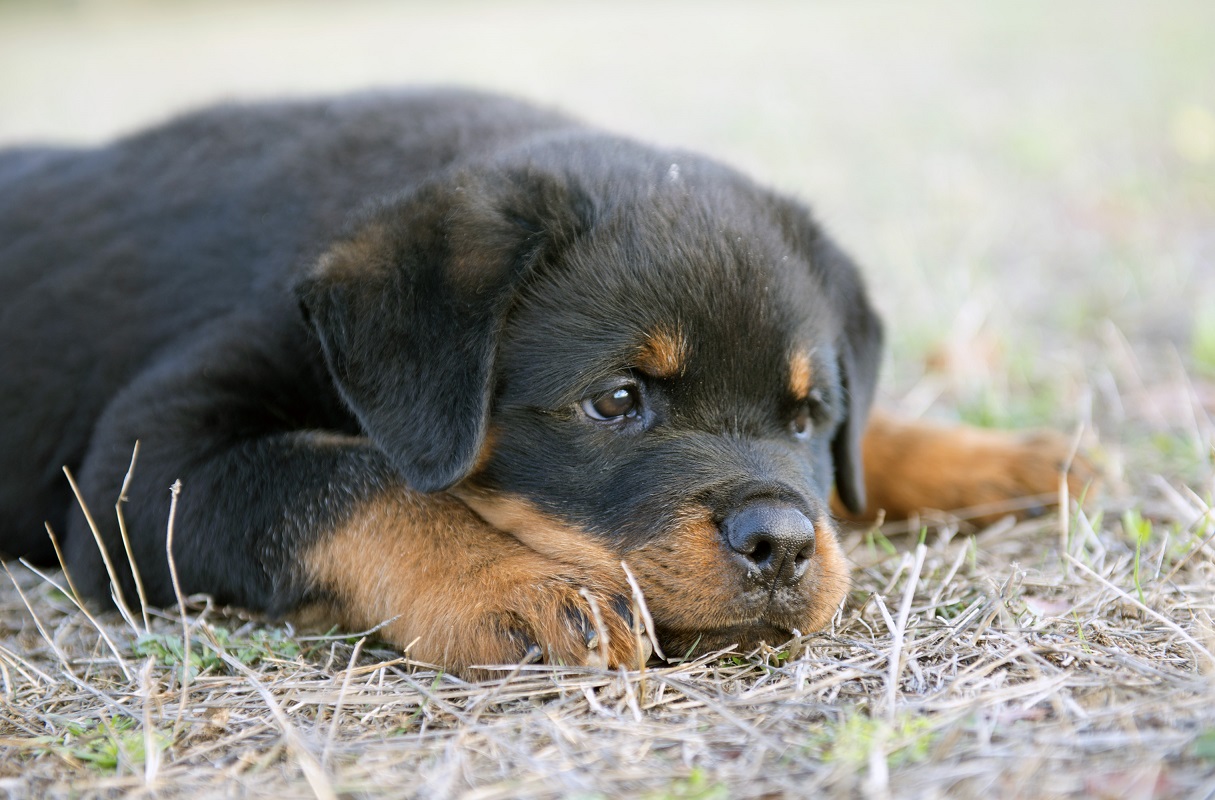
Teach Bite Inhibition
If your dog is still young, now’s the time to introduce them to bite inhibition.
The first step is to teach them how to bite softly.
Most puppies learn this naturally from their siblings and their mother.
When a puppy bites one of its littermates too hard, the other dog will yelp and stop playing – after it happens a few times, the pup will soon learn the value of using their mouth more softly.
When you’re playing with your puppy, do as their littermates would.
Soft, gentle nipping is fine, but if they use their teeth a little too much, say “ouch” in a firm, clear voice and stop the game for a few minutes.
Providing you stay consistent with the approach, your pup will get the message that if they want the fun to continue, they need to be gentle.
Once they’ve learned how to bite softly, you can move on to the next stage in the process. This will teach them not to bite at all.
Start by teaching them the “leave it” command.
Before your next training session, grab a bag of treats. Take a handful, issue the “leave it” command, and wait until they back slightly away.
Once they do, praise them gently and give them a treat.
Keep practicing over several sessions until they start responding to the commend each time. Once they do, use the command whenever they start mouthing your hands during games.
It won’t happen overnight, but providing you’re consistent, your pup will eventually stop seeing you, your hands, and everyone else’s hands as chew toys.
Keep it Positive
A common mistake people make is to try and stop undesirable behaviors through punishment. It doesn’t work.
Punishment isn’t a solution, and it’s not going to teach your pup to stop biting.
The only thing it will do is damage your relationship with them and create a new problem to add to the list.
Consistency and positive reinforcement are the most successful ways to teach bite inhibition.
It might take time, but the more your practice and the more you mark good behavior and positive progress with praise and rewards, the sooner you’ll notice a difference.
Encourage Emotional Control
Everyone lets their emotions run away with them from time to time, and dogs are no exception.
The problem is, a lack of emotional control can all too often lead to impulsive behaviors that can quickly spiral into big problems.
If you want to teach your dog to be more considered, more mature, and less prone to getting snap-happy, take a moment to read through and apply the exercises in My Everyday Dog Training Tools.
They’re not complicated, and you don’t need a background in dog training to follow the advice. But the simplest things can sometimes be the most effective.
If you’ve tried and failed with other training methods, this could be the missing piece of the puzzle.
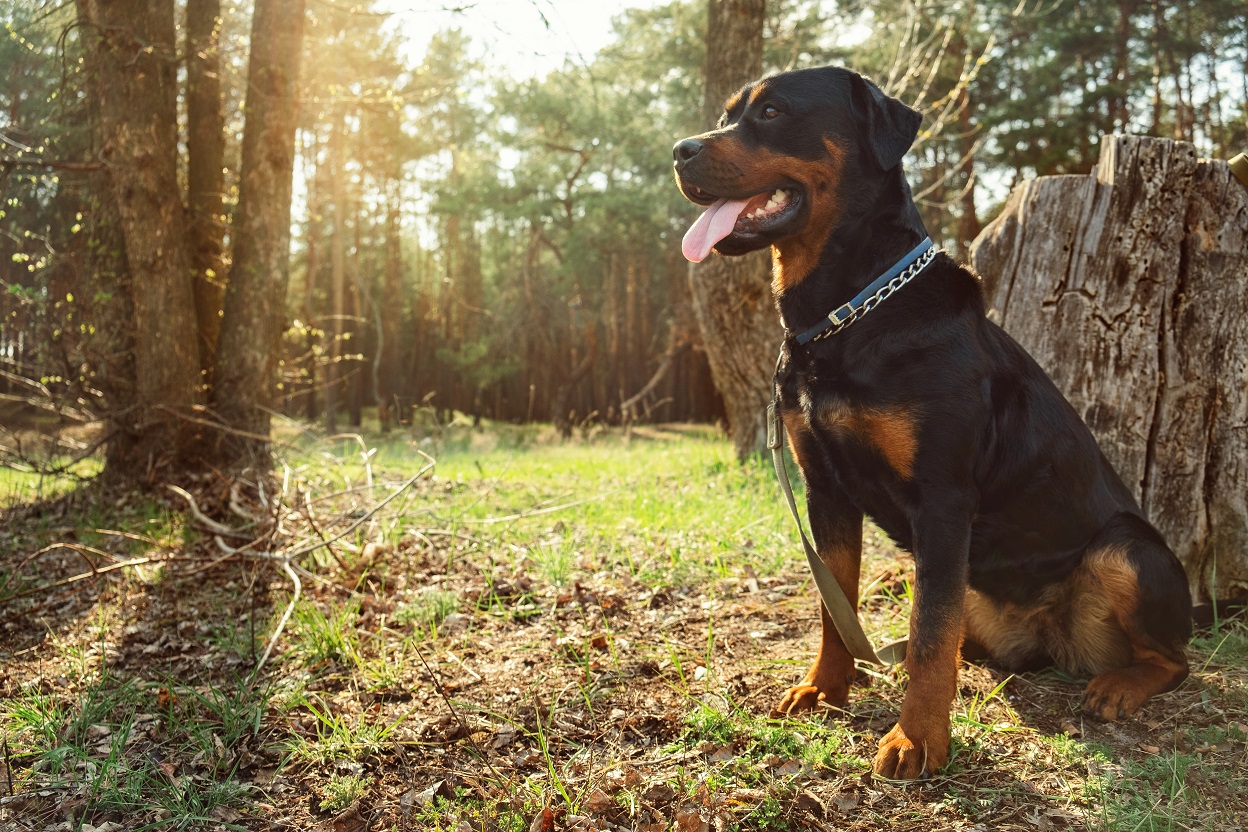
Wrapping Things Up
No one’s going to claim that dealing with a Rottweiler that bites is easy. But no matter how frightening and how daunting the problem feels now, don’t despair.
Ultimately, it’s not uncommon for dogs to bite, especially younger dogs who’ve not yet learned to keep their teeth to themselves.
The fact other dog owners are experiencing the same thing might not feel much comfort, but knowing there are ways and means to manage the problem just might.
It’s going to take hard work, discipline, and consistency, but providing you’re prepared to go the distance, very few problems can’t be improved.
